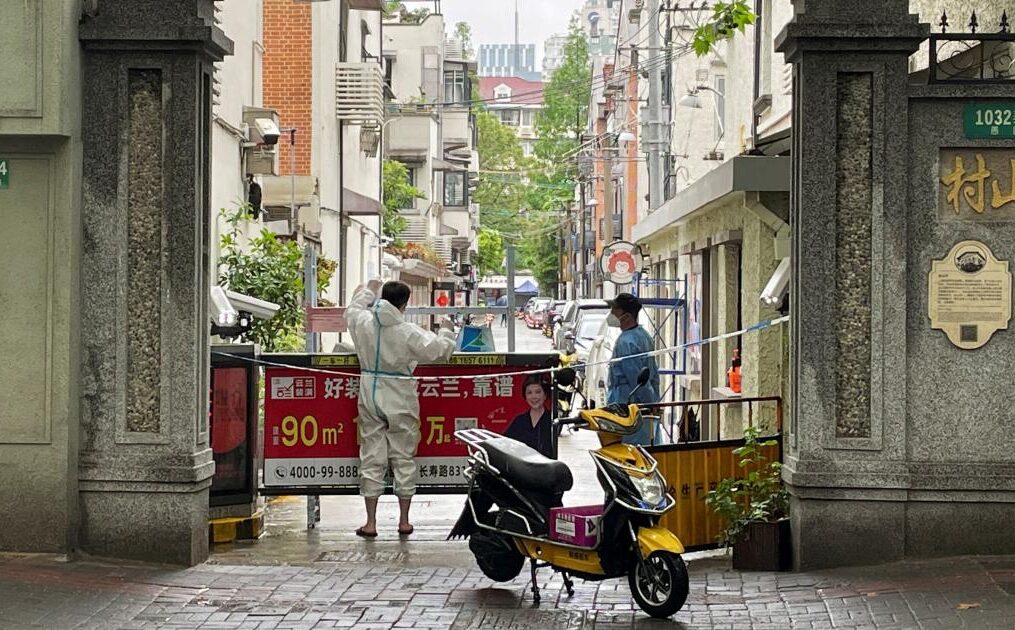Shanghai’s attempts to jumpstart its locked-down economy are faltering
Even as it fences off apartment buildings to keep residents in, Shanghai has been easing restrictions on businesses to restart the city’s economy after weeks of lockdown.
So far it’s been slow going, though, with companies struggling even with the most basic tasks, like food deliveries. Alibaba’s supermarket chain Freshippo said Sunday its delivery capacity is back to about 60 to 70% of pre-outbreak levels, as more couriers were allowed back on the roads, Reuters reported. But that’s well short of what it needs to cover a two to threefold increase in orders as holed-up residents desperately try to procure groceries.
While food apps and online stores like Freshippo kept Chinese families well stocked earlier in the pandemic, the Shanghai lockdown has overwhelmed delivery services. One courier told Shanghai Daily he often delivers 150 takeout orders a day, working until 1am.
That’s even as delivery apps have been adding more workers. Meituan, the largest Chinese food delivery service, said earlier this month it sent almost 1,000 extra workers to Shanghai, and Freshippo, too, said it was adding staff. Meituan and others are also deploying self-driving trucks to keep up with demand.
But it’s hard to ramp up, with most delivery workers reportedly confined to their residential compounds. More broadly, companies need to figure out how to hire and deploy workers amid the lockdown.
Shanghai’s restart sputters
Last week, Shanghai said it was allowing 666 companies—including Tesla—to restart activities. But that’s a tiny fraction of the city’s economic ecosystem. And even that requires workers to indefinitely camp out at their workplaces, something that already stressed-out Shanghai residents might be unwilling to do.
The situation in the food delivery industry underscores the difficulties with Shanghai’s piecemeal approach. Shanghai authorities have said they are trying to ease bottlenecks, and have been making its own food deliveries, but it too has fallen short.
The inability for delivery companies to keep up with orders has led to price gouging, with residents reporting unreasonable minimum purchase quantities and overly expensive vegetables. That, in turn, has prompted government scrutiny on the apps. A crackdown could potentially make things worse. (Officials have punished Meituan and others in the past.)
The food delivery supply crunch could spread to Beijing, which is experiencing a fresh outbreak in covid-19 cases. Over the weekend, panicked residents rushed to buy groceries in preparation for a potential lockdown.
